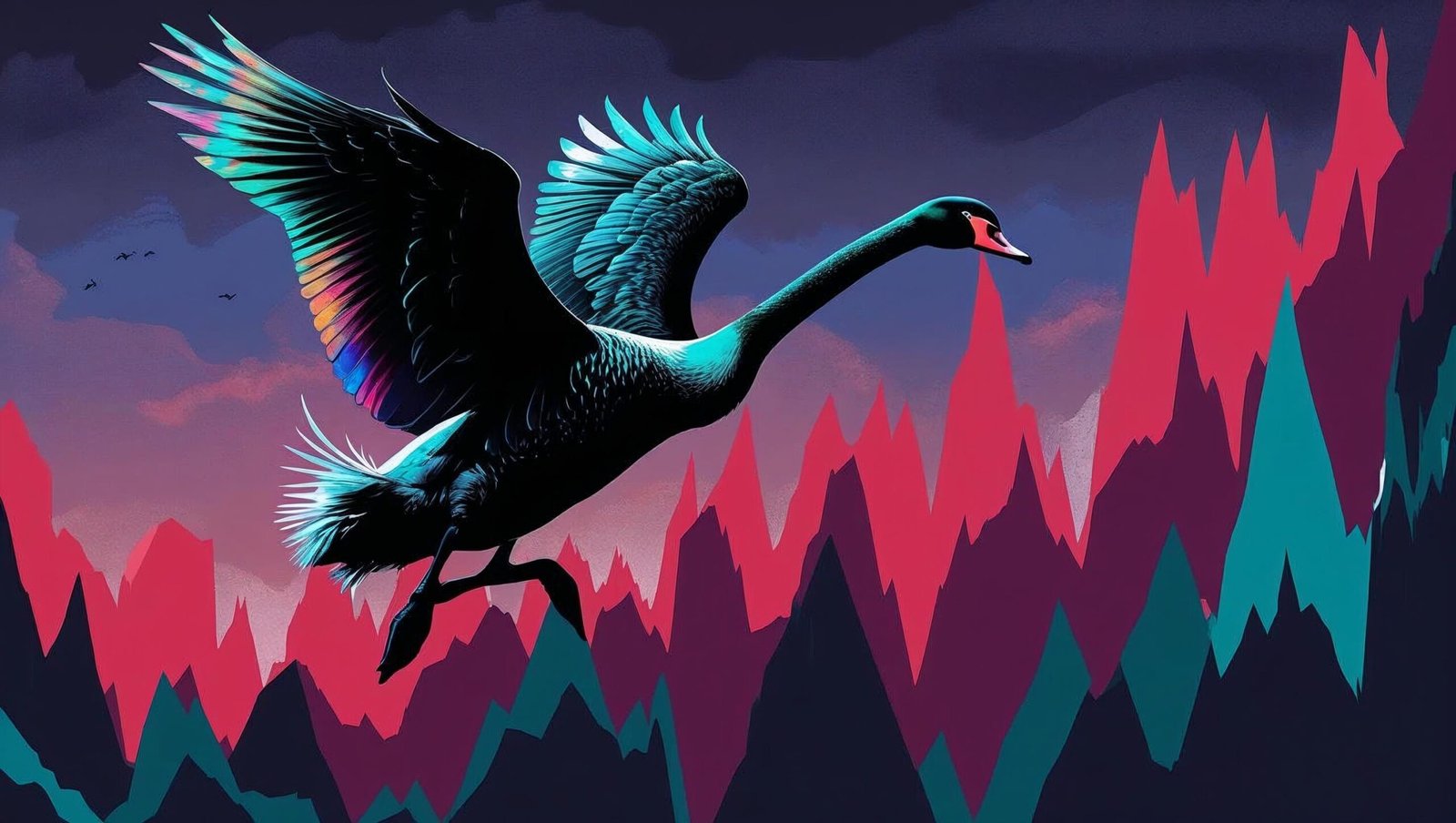Introduction
The Black Swan Summary by Nassim Nicholas Taleb is not just a book review; it is a powerful exploration into the world of uncertainty, unpredictability, and rare events that shape history. Taleb’s work is provocative, intellectually demanding, and highly relevant in today’s volatile world. The book challenges conventional thinking by arguing that what truly changes the course of human history are not the ordinary, predictable events, but the highly improbable and unforeseen “Black Swans.”
This Black Swan Summary delves into how these rare events affect markets, politics, science, and even our personal lives. Taleb not only introduces us to the concept of Black Swans but also provides practical insights on how to prepare, survive, and thrive amidst uncertainty.
In this blogpost, we will break down 11 shocking lessons from The Black Swan Summary, analyze Taleb’s key arguments, and explore how these lessons apply to real-life situations.

Lesson 1: Understanding the Concept of the Black Swan
At its core, the Black Swan Summary defines a Black Swan as a highly improbable event that carries massive impact and is rationalized only in hindsight. Examples include the rise of the internet, the 2008 global financial crisis, and the September 11 attacks. These events were unforeseen, yet they reshaped history.
Taleb argues that we live in a world where prediction is overvalued. Instead of attempting to forecast the future, we must build systems that can withstand and benefit from randomness.
Lesson 2: The Three Characteristics of Black Swans
In the Black Swan Summary, Taleb identifies three characteristics of a Black Swan event:
-
Rarity – It is an outlier beyond the realm of regular expectations.
-
Extreme Impact – It has transformative consequences.
-
Retrospective Predictability – Once it occurs, people create explanations that make it appear predictable.
This framework helps us understand why societies are repeatedly blindsided by major disruptions.
Lesson 3: The Tyranny of Prediction
The Black Swan Summary highlights the futility of forecasting. Experts, economists, and analysts often rely on past data to predict the future, but history shows that the most consequential events are those that nobody anticipated. Taleb strongly criticizes the overconfidence of professionals who claim certainty in an uncertain world.
Instead of prediction, he emphasizes preparedness.
Lesson 4: Mediocristan vs. Extremistan
One of the most powerful insights in the Black Swan Summary is Taleb’s distinction between Mediocristan and Extremistan.
-
In Mediocristan, events follow normal distributions, such as human height or weight, where outliers exist but do not significantly distort the average.
-
In Extremistan, outliers dominate outcomes, such as wealth distribution, stock markets, or book sales.
Understanding whether we are operating in Mediocristan or Extremistan is crucial for survival in an uncertain world.
Lesson 5: The Narrative Fallacy
The Black Swan Summary exposes how humans love stories and narratives. We create causal explanations for random events after they occur, tricking ourselves into believing we understood them all along.
This tendency blinds us to the possibility of genuine surprises. The narrative fallacy is dangerous because it prevents us from accepting uncertainty and randomness as fundamental realities.
Lesson 6: Silent Evidence and Survivorship Bias
Another key insight from the Black Swan Summary is the concept of silent evidence. We often ignore the failures and focus only on the visible successes. For instance, when studying successful entrepreneurs, we forget the countless others who failed but remain invisible in history.
This survivorship bias creates a false sense of certainty and misleads us into underestimating risks.

Lesson 7: The Ludic Fallacy
In the Black Swan Summary, Taleb criticizes the overuse of models and games to understand real-world complexity. He calls this the Ludic Fallacy, where scholars treat uncertainty as if it were a casino game with fixed probabilities.
But life is far more unpredictable. Unlike dice or roulette, the real world has unknown unknowns that cannot be modeled with neat equations.
Lesson 8: Positive and Negative Black Swans
The Black Swan Summary explains that not all Black Swans are destructive. Some are positive and lead to massive breakthroughs, such as the invention of electricity, penicillin, or the internet. Negative Black Swans, however, include events like financial crashes and pandemics.
Learning to position ourselves to benefit from positive Black Swans while protecting against negative ones is the essence of Taleb’s philosophy.
Lesson 9: How to Survive Black Swan Events
Taleb offers practical advice in the Black Swan Summary:
-
Avoid overexposure to negative Black Swans by minimizing fragile risks.
-
Embrace optionality—keep opportunities open that allow benefits from unexpected upside.
-
Diversify your life and investments rather than putting all eggs in one basket.
-
Be skeptical of predictions and question expert opinions.
This strategy is less about prediction and more about resilience.
Lesson 10: The Role of Antifragility
While The Black Swan introduces the concept of rare events, Taleb later expands this idea in his book Antifragile. Still, the Black Swan Summary hints at the importance of becoming antifragile—systems, individuals, and organizations that not only withstand shocks but also grow stronger because of them.
Lesson 11: Living with Uncertainty
The final message in the Black Swan Summary is to accept uncertainty as an unavoidable aspect of life. Instead of resisting it, we should adapt, stay humble, and prepare for surprises. By embracing uncertainty, we can navigate a world shaped by randomness with greater confidence and resilience.
Deep Dive into The Black Swan Concept
The concept explained in the black swan summary challenges one of the deepest human desires—the need for predictability. We are comforted by the belief that tomorrow will resemble today, and that patterns will guide us toward certainty. Yet history constantly proves otherwise. Wars, pandemics, technological leaps, and cultural revolutions have all arrived as complete shocks, even to the most prepared minds.
Taleb’s intellectual courage lies in telling us that we are not only bad at predicting but also blind to our blindness. We are prisoners of models, theories, and linear thinking. For example, in the early 20th century, no one predicted the sudden fall of empires during World War I. Likewise, the fall of the Soviet Union in 1991 was a Black Swan that reshaped global politics almost overnight. These events were outside the boundaries of conventional wisdom, yet they defined an era.

Criticism of Experts and Intellectual Arrogance
A recurring theme in the black swan summary is Taleb’s scathing criticism of experts—particularly economists, bankers, and statisticians. He argues that their overconfidence leads societies into fragile positions. For instance, in the years leading up to the 2008 financial crisis, economists and financial analysts produced endless forecasts suggesting stability. In reality, their models excluded rare events that could collapse the system.
Taleb does not dismiss all expertise, but he condemns those who fail to acknowledge uncertainty. True wisdom, he argues, is the ability to say, “I don’t know.” The arrogance of certainty is dangerous because it blinds decision-makers to potential Black Swan risks.
The Psychology of Predictability
The human brain craves order. We dislike randomness and uncertainty because they cause anxiety. As a result, we invent stories to make sense of unpredictable events. This is precisely what the black swan summary warns against—the narrative fallacy. Consider how societies explained the COVID-19 outbreak: after it spread, analysts constructed neat stories about wet markets, global travel, and government failures. While some of these explanations are valid, the truth is that very few experts foresaw a pandemic of this scale.
Our reliance on stories comforts us, but it also blinds us. If we constantly reframe unpredictable events as inevitable in hindsight, we will never prepare for the next surprise.
Black Swans in Business and Innovation
One of the most practical aspects of the black swan summary is its application in business strategy. Many of the most successful companies did not rise because of careful long-term planning but because of unexpected breakthroughs.
-
Apple benefited from the iPhone’s overwhelming success, an event that could not have been predicted in advance.
-
Google was initially a search engine project at Stanford, not a carefully designed trillion-dollar business model.
-
Facebook started as a social experiment within a university but turned into a global phenomenon.
These are examples of positive Black Swans—unplanned, unforeseen, and massively impactful. On the negative side, businesses like Kodak and Nokia were destroyed by technological surprises they failed to anticipate.
Taleb’s advice to entrepreneurs is clear: design businesses that can capitalize on unexpected opportunities while protecting themselves from devastating risks.
Black Swan Events in History
The black swan summary is enriched by countless historical examples that reveal the unpredictable nature of history:
-
The Fall of the Roman Empire – Centuries of dominance ended with sudden invasions and political chaos.
-
The Printing Press – Nobody foresaw that Gutenberg’s invention would revolutionize communication, religion, and science.
-
The Great Depression (1929) – Economists failed to predict the collapse that defined an entire generation.
-
September 11, 2001 – A single day of terrorism reshaped global politics, economics, and security policies.
-
Brexit (2016) – Few expected Britain to vote to leave the European Union, yet it reshaped European geopolitics.
Each of these cases demonstrates Taleb’s point that randomness, not predictability, defines history.
Application of Black Swan Thinking in Personal Life
Beyond business and politics, the black swan summary can transform personal decision-making. By accepting uncertainty, individuals can avoid overconfidence and better prepare for surprises.
-
Career Planning: Careers are rarely linear. Being open to unexpected opportunities—such as a sudden promotion, a new industry, or even a failed startup—can yield greater rewards than rigid planning.
-
Investments: Instead of chasing predictions, one should adopt strategies that protect against large losses while leaving room for massive upside.
-
Relationships: Some of the most meaningful connections in life happen unexpectedly, through chance encounters or unplanned circumstances.
In essence, Taleb urges us to design our lives with flexibility, resilience, and optionality.
Why We Fail to See Black Swans
According to the black swan summary, humans are blinded by three psychological traps:
-
Confirmation Bias – We seek evidence that confirms what we already believe, ignoring contradictory signals.
-
Overreliance on Statistics – We depend on neat mathematical models that ignore extreme outliers.
-
Linear Thinking – We assume the future will resemble the past, forgetting that disruptive events can rewrite everything.
These traps are deeply ingrained in human psychology and require conscious effort to overcome.

Black Swans in the Digital Age
In today’s interconnected world, Black Swans are even more powerful because of global connectivity. A single innovation or disaster can ripple across the entire planet in hours. The black swan summary resonates strongly in the digital age:
-
Social Media Influence: Platforms like TikTok or Instagram rose suddenly, reshaping communication, marketing, and politics.
-
Cryptocurrencies: Bitcoin’s rise shocked traditional finance, becoming a billion-dollar market despite initial dismissal.
-
Artificial Intelligence: AI breakthroughs represent positive Black Swans, capable of reshaping entire industries within a decade.
These developments highlight that we live in Extremistan, where outliers dominate outcomes.
Strategies to Thrive Amid Black Swans
Taleb’s philosophy is not purely negative. The black swan summary provides concrete methods to thrive:
-
Barbell Strategy – Combine extreme safety with exposure to high-risk, high-reward opportunities.
-
Redundancy – Build reserves of resources, time, and skills to withstand shocks.
-
Embrace Simplicity – Avoid overcomplicated models; instead, focus on robustness and resilience.
-
Stay Humble – Recognize the limits of knowledge and remain open to surprises.
These principles are applicable to both organizations and individuals.
Critiques of The Black Swan
While influential, the black swan summary has faced criticism. Some argue that labeling events as Black Swans only in hindsight is unhelpful. Others claim that Taleb overstates randomness and underestimates human capacity to forecast.
Yet these critiques often miss Taleb’s deeper point: he is not asking us to predict the unpredictable, but to recognize the limits of prediction. His work is less about forecasting and more about survival and resilience.
Broader Implications of Taleb’s Philosophy
One of the most powerful aspects of Taleb’s work is that it forces readers to re-examine assumptions about certainty. We often plan our lives as if the future will neatly follow our intentions. Students pursue careers assuming their industries will remain stable, governments craft policies expecting slow change, and investors rely on historical data to anticipate returns. Yet, the reality of human history shows that sudden disruptions can alter everything in an instant.
This does not mean that planning is useless, but rather that plans should remain flexible. A wise approach is to prepare for multiple scenarios rather than cling to a single expectation. In practice, this could mean learning diverse skills, maintaining financial buffers, or designing organizations with decentralized structures. By doing so, individuals and institutions become better prepared to withstand disruption.
Philosophical Dimensions
Beyond economics and risk, Taleb’s ideas invite deeper philosophical reflection. His arguments challenge the Enlightenment notion that human reason can master the future. Instead, he aligns more closely with ancient Stoicism, which taught acceptance of uncertainty and preparation for adversity. By acknowledging that control is limited, one can achieve greater peace of mind.
This perspective does not encourage passivity but active readiness. Rather than resisting uncertainty, the challenge is to engage with it intelligently. This requires humility, courage, and a willingness to learn from unexpected events.
The Black Swan Summary in Real Life Examples
-
2008 Financial Crisis: Few foresaw the collapse, yet it reshaped global economics.
-
COVID-19 Pandemic: A rare event with massive impact, exposing vulnerabilities in health systems and economies.
-
Technological Disruptions: The rise of AI and digital currencies demonstrates positive Black Swans transforming society.

Final Reflection
True wisdom lies in preparing for the unexpected, embracing uncertainty, and cultivating resilience. Life is shaped less by what we predict and more by how we adapt. Strength, humility, and openness to surprise remain timeless guides for navigating an uncertain world.
FAQs on The Black Swan Summary
Q1. What is the main idea of The Black Swan Summary?
The book explains that rare, unpredictable events with extreme consequences shape history far more than ordinary events.
Q2. Is The Black Swan only about finance?
No, while it applies strongly to economics, the concept extends to politics, technology, science, and everyday life.
Q3. How does The Black Swan Summary help in daily life?
It teaches us to embrace uncertainty, avoid overconfidence in predictions, and prepare for surprises.
Q4. Are all Black Swan events negative?
No, many are positive, such as scientific discoveries or technological breakthroughs.
Q5. What practical advice does Taleb give?
He recommends minimizing fragility, diversifying risks, keeping options open, and building resilience.
Conclusion
The Black Swan Summary is a wake-up call in a world obsessed with prediction and control. Nassim Nicholas Taleb forces us to confront the uncomfortable truth: the biggest forces shaping our lives are unpredictable, rare, and beyond traditional analysis.
By internalizing the lessons from the Black Swan Summary, we can learn not only to survive but also to thrive amidst uncertainty. Whether you are an investor, a policymaker, or simply someone navigating everyday challenges, Taleb’s wisdom offers a path toward resilience and wisdom in an unpredictable world.
For more thought-provoking reviews and insights, visit shubhanshuinsights.com.
Powerful Comment: In a world that constantly surprises us, the most dangerous illusion is certainty. The Black Swan Summary teaches us to be humble, resilient, and ready for the unimaginable.